P.O. Box 615
Jericho, NY 11753
(516) 590-7551
infor@longislandtourette.org

Northwell Health Presents:
Agenda & Brochure
Click to Download Brochure (PDF)
Meet the Faculty
Click to view faculty
Jointly provided with the Tourette Association of America, Long Island Chapter and the Long Island Center for Tourette and Associated Disorders.
P.O. Box 615
Jericho, NY 11753
(516) 590-7551
infor@longislandtourette.org
Support groups meet the first Friday of the month (except where noted otherwise), only virtually at this moment.
We will be holding the following Zoom Support groups:
Kids- 6:00 pm-6:45 pm
Get ready for another fun activity!
Parents/Adults- 7 pm – 8 pm
Teens/Young Adults- 8:15 pm – 9:15 pm

Long Island Tourette Association has a team of trained individuals who provide free in-service for faculty, psychologists, social workers, staff and other school personnel that may interact with children who have Tourette. School personnel benefit immensely from the knowledge and valuable teaching methods they acquire through these presentations, coming away with skills and understanding that dramatically improve the academic and social environment of children with Tourette. Educational materials provided include brochures, CDs and DVDs.
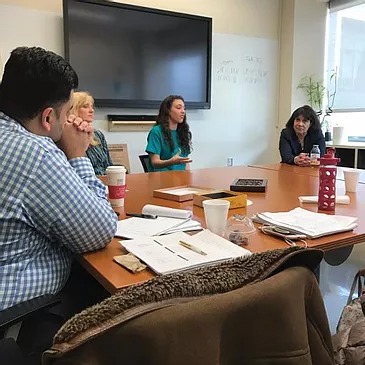
The Youth Ambassador Program is a highly successful national level program designed by the Long Island Chapter’s very own Jennifer Zwilling. Once a year a new group of teens, with or without Tourette, who have applied and have been accepted into the program from all over the country meet in Washington D.C. where they are formally trained by Ms. Zwilling. As part of the training in DC, Youth Ambassador trainees also participate in a visit to the Hill where they lobby senators and congressmen to promote awareness about Tourette and to obtain educational and research funding. Back in their home states, Youth Ambassadors go into classrooms to speak with classmates of children with Tourette, and do presentations on what it means to have Tourette. They engender a new sensitivity, awareness and tolerance that enrich and greatly improve the classroom experience for the child with Tourette and his/her classmates. Informational materials are given to every student that is in a classroom visited by a Youth Ambassador.
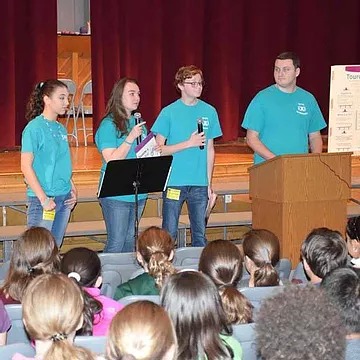
Since 2006, members of the Tourette Association have witnessed the powerful role policy has in supporting students with disabilities when Tourette disorder was included within the Individuals With Disabilities Education Act (IDEA). That was accomplished due to the tireless efforts in advocating of many Tourette Association chapter members from all over the country, including our own Long Island members. As Congress discusses ways in which to improve the education system and hold students and teachers accountable we invite you to voice your concerns and relay specific recommendations on how to meet the needs of students with Tourette and Tic Disorders.
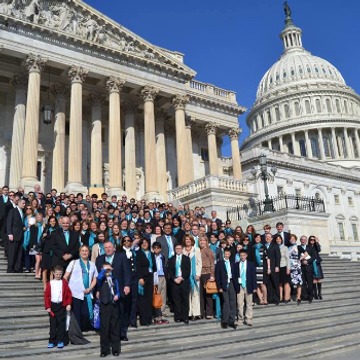
Long Island Tourette Association organizes, sponsors, and/or provides support for conferences on Tourette that are directed towards various audiences. Recent conferences include a one day symposium on Tourette at Hofstra University directed toward allied health professionals, educators and families living with Tourette; a CBIT (cognitive behavioral intervention for tics) symposium at NSLIJ for allied health professionals at the Feinstein Institute.
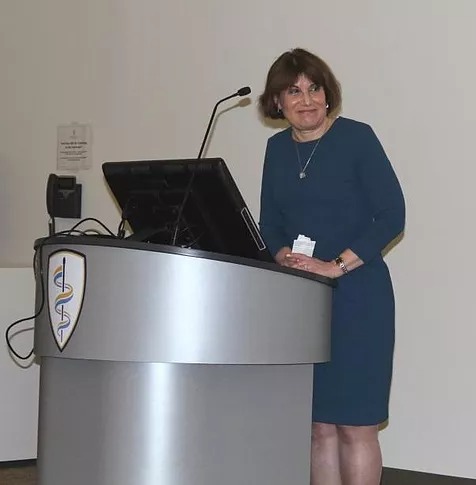
Social activities for the child with Tourette can enjoy a variety of activities without worrying about his/her Tourette are arranged several times a year. Socials are free to chapter members and include such activities as rock climbing, morning at the movies (we rent a whole movie theater), HorseAbility, DogAbility, bowling, a winter holiday party, and more.
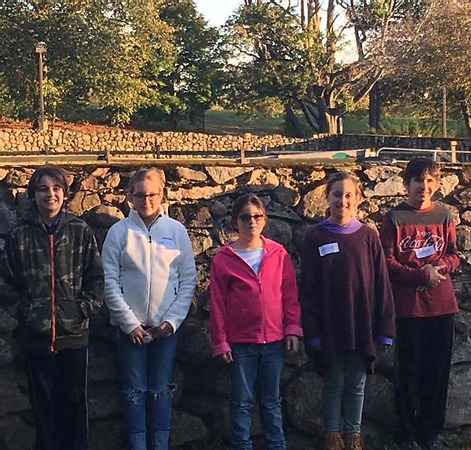
Long Island Tourette Association organizes several fundraising events each year.
Our main fundraising event is our annual Family Fun Day, which takes place during Tourette awareness month in June. Families come out for a fun filled day of bouncy inflatables, sand art, face painting, DJ, tie dying and other activities, as well as raffles and refreshments.
Long Island Tourette Association also participates in the Champions for Charity Event at Americana Manhasset during the holiday season. At this event, proceeds are generated from shoppers who choose LITA to be the recipient of a portion of their purchases.
All chapter activities are underwritten by proceeds from our fundraising events. We always welcome volunteers to help with our fundraising efforts. If you would like to volunteer please contact us.
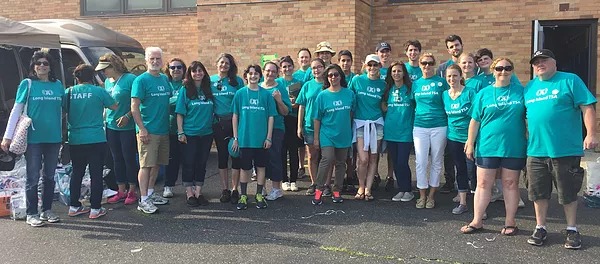
Member of the New York State Consortium for Tourette
1615 Northern Blvd, Suite #306,
Manhasset, NY 11030
Tel: 516-365-0587
Fax: 516-365-1909
info@litourettecenter.org
Long Island Center for Tourette, in collaboration with the Long Island chapter of the Tourette Association of America (LITAA) has a team of trained individuals who provide free in-service for faculty, psychologists, social workers, staff and other school personnel that may interact with children who have Tourette. School personnel benefit immensely from the knowledge and valuable teaching methods they acquire through these presentations, coming away with skills and understanding that dramatically improve the academic and social environment of children with Tourette. Educational materials provided include brochures, CDs and DVDs.
A variety of educational programs are offered through the Center including formal classroom didactics, workshops, lectures, conferences, 1:1 supervision, advanced specialty electives, staff in-service training, and live patient panel discussions that provide an opportunity to hear directly from youth and young adults with TS and their families. Educational experiences are available for medical students, psychology graduate students, mental health counseling students, nursing and physician assistant students, and post-graduate trainees including residents and fellows in family medicine, pediatrics, adult medicine, neurology and psychiatry. Such programs enhance awareness and understanding of the perspectives, stresses, and complex needs of families living with TS and associated disorders such as OCD, ADHD, and anxiety and educate healthcare providers about best practice management.
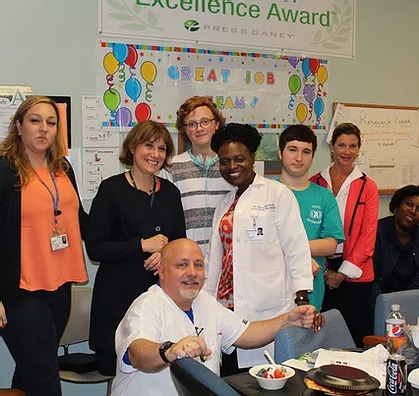
Most often, tics are mild, and treatment is not required. In all cases, it is essential to educate the individual and others in his/her life about TS and to provide appropriate supports across all settings (school, work, home).
When tics become problematic or interfere with daily functioning, behavioral treatment or medication may be considered.
Because each patient is unique, the individual or family should work with a clinician to determine an appropriate treatment plan. It may take some time and patience to determine the most effective approach. A clinician may recommend first treating one of the co-occurring conditions if it is more bothersome or problematic than the tics. It is usually best to begin with an effective treatment that is unlikely to cause any side effects.

50 Division Street Suite 205
Somerville, NJ 08876
Ph: (908) 575-7350
Fx: (908) 575-8699
https://njcts.org/
42-40 Bell Boulevard, Suite 205
Bayside, NY 11361
888-4-TOURET
support@tourette.org
https://tourette.org
At the Tourette Association of America we are dedicated to providing the most comprehensive resources and support for all of those in the Tourette Syndrome and Tic Disorder community. This resource page lists a wealth of information on a variety of topics. In addition, our robust Resource Directory is a fully searchable, comprehensive database on all topics related to Tourette Syndrome and Tic Disorders. We understand that this disorder presents uniquely across all individuals. One size does not fit all, so we encourage you to reach out and get involved.
Tourette syndrome in children. Eapen V, Usherwood T. Aust J Gen Pract. 2021 Mar;50(3):120-125. PMID: 33634279. doi: 10.31128/AJGP-10-20-5700
A review of the current treatment of Tourette syndrome. Seideman MF, Seideman TA. J Pediatr Pharmacol Ther. 2020;25(5):401-412. PMID: 32641910. doi: 10.5863/1551-6776-25.5.401
Current management of tics and Tourette syndrome: behavioral, pharmacologic, and surgical treatments. Billnitzer A, Jankovic J. Neurotherapeutics. 2020 Oct;17(4):1681-1693. PMID: 32856174. doi: 10.1007/s13311-020-00914-6
Novel pharmacological approaches for Tourette syndrome. Fletcher J, Martino, D, Pringsheim T. Curr Dev Disord Rep. 2020; 7:270–276. doi: 10.1007/s40474-020-00213-x
Pharmacotherapy for tics in adult patients with Tourette syndrome and other tic disorders. Badenoch J, Cavanna AE. Neurol Sci. 2020 Jul;41(7):1923-1926. PMID: 32170503. doi: 10.1007/s10072-020-04327-3
Comprehensive systematic review summary: treatment of tics in people with Tourette syndrome and chronic tic disorders. Pringsheim T, Holler-Managan Y, Okun MS, Jankovic J, Piacentini J, Cavanna AE, Martino D, Müller-Vahl K, Woods DW, Robinson M, Jarvie E, Roessner V, Oskoui M. Neurology. 2019 May 7;92(19):907-915. PMID: 31061209. doi: 10.1212/WNL.0000000000007467
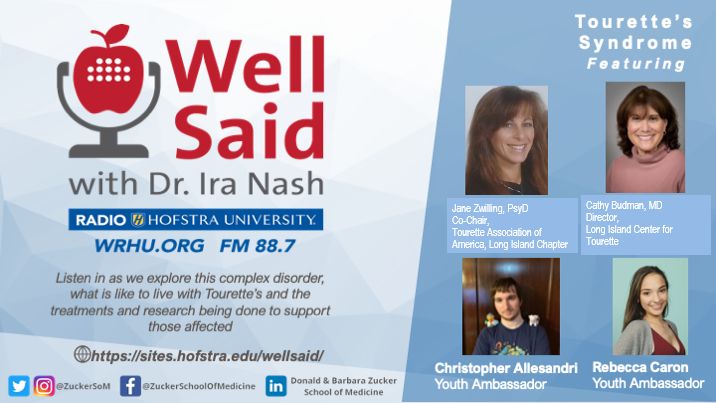

Click play to hear the audio broadcast